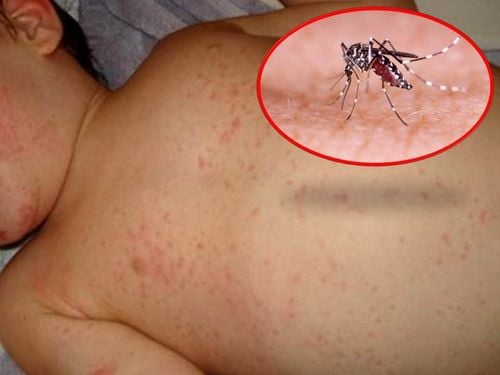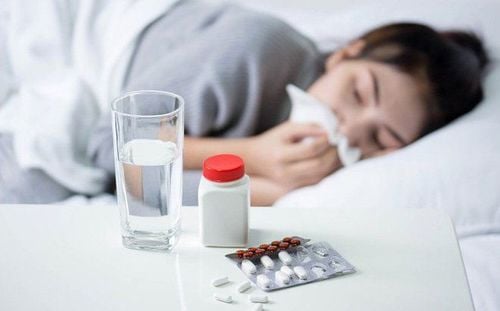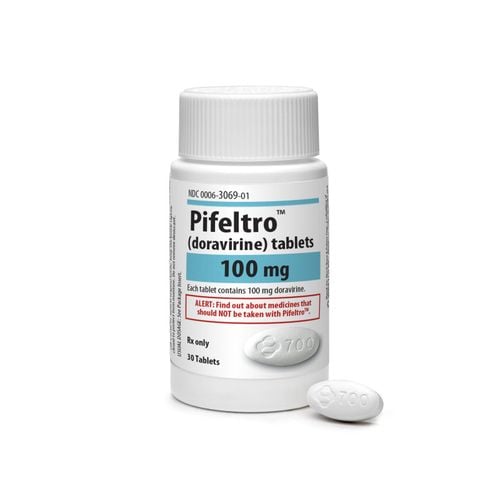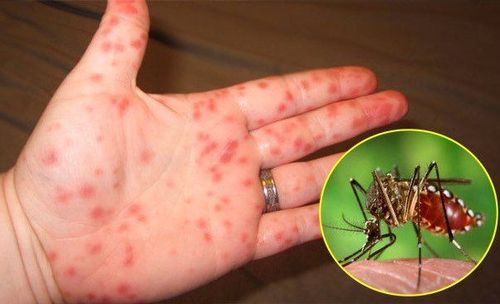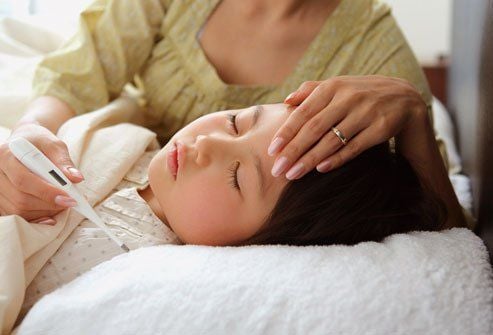This is an automatically translated article.
The article was professionally consulted by Doctor Vo Ha Bang Suong - Doctor of Medicine - Department of Medical Examination & Internal Medicine - Vinmec Phu Quoc International General Hospital. The doctor has more than 15 years of experience in the treatment of internal diseases.Dengue fever is a blood-borne disease transmitted by mosquitoes that carry the disease, if not promptly intervened, it will pose a danger to health. In order to effectively treat dengue fever, in addition to strictly following the doctor's regimen, it is also necessary to have a process of monitoring dengue at home properly to avoid serious complications that may be encountered.
1. What is Dengue fever?
Dengue fever is an acute infectious disease caused by the dengue virus. Dengue is transmitted by mosquitoes that transmit the dengue virus from an infected person to a healthy person. Dengue fever easily leads to dangerous complications, so the monitoring of dengue fever needs to be done properly.Dengue fever symptoms depend on the severity
Dengue fever has 3 levels
Dengue hemorrhagic fever: The disease usually starts with fever and will last for 2-7 days after being transmitted by mosquitoes. In addition, there are symptoms such as: severe headache, pain behind the eyes, joint and muscle pain, nausea and vomiting, a rash appearing on the body 3-4 days after the onset of fever and then Remission after 1-2 days. You may get the rash again the next day; Dengue with warning signs: Signs of this type of dengue include all the symptoms of classic dengue with blood vessel and lymphatic damage, nosebleeds, and bleeding gums. or under the skin, causing bruising; Severe dengue hemorrhagic fever: This is the most severe form of dengue hemorrhagic fever, which includes all manifestations of mild dengue plus symptoms of bleeding, with plasma escaping from the blood vessels, massive bleeding inside and outside the body, shock (low blood pressure). Therefore, the treatment and monitoring of dengue fever in patients need to be cautious.
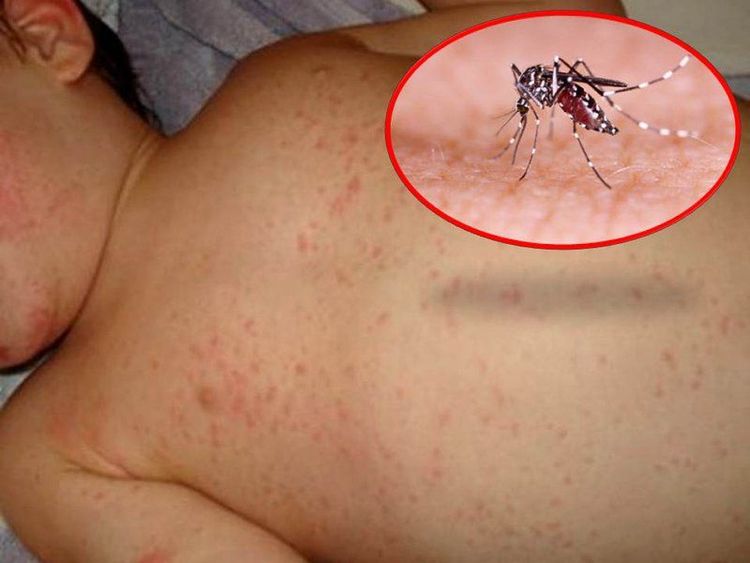
Sốt xuất huyết là bệnh truyền nhiễm cấp tính do muỗi truyền
2. Dangerous complications of dengue fever
If the patient with dengue fever is not treated promptly and the monitoring and home care process is not properly, it will endanger health and have a high risk of death. Dangerous complications of dengue include:
Severe plasma leakage reduces circulating volume leading to dengue shock; Heavy bleeding; Severe epistaxis (needs stuffing of nasal septum), heavy menorrhagia, bleeding in muscle and soft tissue, gastrointestinal and visceral bleeding. Severe bleeding may lead to disseminated intravascular coagulation; Severe bleeding can also occur in patients taking drugs such as aspirin, ibuprofen to reduce fever or taking corticosteroids, a history of gastric and duodenal ulcers, chronic hepatitis; Severe organ failure; Acute liver failure, liver enzymes AST, ALT ≥ 1000 U/L; Acute renal failure: Oliguria, anuria (no urine), urea, elevated creatinine; Consciousness disturbances (cerebral hemorrhagic fever); Myocarditis, heart failure.
3. How to take care of dengue patients at home
For mild disease, dengue can be treated at home without hospitalization. When having dengue fever in the first 3 days, the patient will have a high fever response like other common viral fever and usually have no complications, so it can be treated at home by:
Monitor temperature by thermography in the armpits or anus or in the corners of the mouth every few hours; Absolute rest in a cool, air-conditioned environment is ideal; Drink water mixed with oresol electrolyte powder as directed (from 2 liters/day), drink fruit juices, smoothies, supplement vitamins C, B1; Eat liquid, easy to digest, energy-rich, protein-rich foods such as lean meat porridge, soup...; When fever, body temperature rises, so you must find ways to make the body radiate heat by taking paracetamol to reduce fever combined with applying cool water in the armpit, groin and folds, wiping the whole body. Cover the body with warm water to cool down. In order to help the body temperature radiate faster, the patient should wear loose clothing because when the patient has a high fever, the body often feels chills, many people do not know to cover the patient with blankets or wear many clothes. doing this further limits the body's heat, making dengue fever take longer to treat and lead to serious complications; For young children, it is necessary to continue giving them regular, easy-to-digest foods. If the child eats little or is vomiting, it is necessary to give many meals to provide enough energy for the child. Avoid foods high in fat. Babies who are breastfed should feed them more times and for a longer time. More milk is needed to provide nutrients for the baby. Note: Dengue fever patients treated at home should absolutely not use aspirin or ibuprofen to reduce fever, but only take antipyretic drugs when the temperature is over 38.5 degrees Celsius with a dose of paracetamol 10-15mg/kg/time, with a dose of paracetamol 10-15mg/kg/time. That is, people 40 kg take 1 tablet of 500 mg / time and people over 70 kg take 2 tablets / time, take 1 time every 4-6 hours in combination with fever reduction by physical methods as mentioned above.
During the 4th - 7th day, the family pays special attention, when the patient shows unusual signs such as fatigue, sweating, cold limbs, abdominal pain, vomiting, difficulty breathing, nosebleeds or tooth roots, menorrhagia... need to go to a medical facility immediately for treatment.
Some people often think that it is not advisable to give saline solution, vitamin solution or protein infusion after the patient is discharged from the hospital to improve health because at this stage the body reabsorbs the fluid, the risk of excess Translation is very dangerous. In particular, the transmission of fluids at home or in a private medical facility without in-depth knowledge of dengue fever can be life-threatening.

Theo dõi nhiệt độ bằng cách cặp nhiệt độ ở nách
4. Dengue fever prevention
To prevent dengue, when going to a place with dengue fever, you should stay in an air-conditioned room or a clean room to avoid mosquitoes; avoid going outdoors at dawn, dusk and evening, when there are many mosquitoes outside; wear covered clothing; Apply mosquito repellent on areas of skin that are not covered by clothing, such as arms, face, legs, and neck.The mosquitoes that carry the dengue virus often live in and around homes, in pools of standing water, such as pots, drums, or near aquariums. Make sure to clean the aquarium regularly as well as clean up puddles of standing water to not create conditions for mosquitoes to grow. You also need to cover all water containers and limit or dispose of items that may contain water; Use aquatic organisms to destroy the eggs of mosquitoes.
Please dial HOTLINE for more information or register for an appointment HERE. Download MyVinmec app to make appointments faster and to manage your bookings easily.




